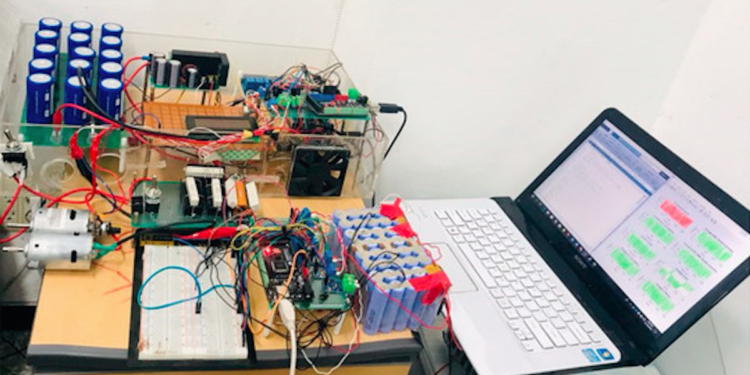You have decided to travel by plane and you don’t know what is the procedure when it comes to lithium batteries or what is the procedure for carrying any device that contains lithium batteries. Most devices have lithium batteries, specifically lithium-ion batteries.
In this case, you should not listen to friends who packed everything in a suitcase that goes in the cargo part of the plane, because they were probably lucky that there was no accident such as a fire that could endanger all passengers in the worst case, not counting the damage that would occur with suitcases of other passengers.
All devices such as laptops, mobile phones, tablets, power banks, electric cigarettes of any kind, cameras, electric brushes, or anything that has a battery in it must not go in the suitcase and the cargo bay of the plane, because it can burst. Batteries are not stable under atmospheric pressure and air, and its sudden changes. When a burst occurs, if you are lucky there may only be a battery leak, but there may also be a fire. A fire cannot be prevented in time if it happens in the cargo bay of an airplane. If a fire occurs, nobody can react in time until it is too late. If a fire occurs while the battery is in the cabin with you, it is very easy to react and prevent a fire that would endanger you and other passengers, as well as the flight itself.
What Are The Regulations When It Comes To Travelling With Devices That Have Lithium Batteries?
All batteries must go with you in your hand luggage until the check-in when you need to take those same batteries out of your bag and they should be with you in a visible place.
Also, you cannot bring an unlimited number of batteries into the plane, as a larger quantity is considered to be going for resale. You can only have two spare batteries for each device you own and bring on board. If you have one spare battery, it should not have more than 300 watt-hours, and if you have two batteries, it should not have more than 160 watt-hours each so they can go in hand luggage.
The batteries that go in hand luggage must be protected according to FAA (Federal Aviation Administration) regulations.
All batteries must be protected, whether in their original packaging, in the case intended for that battery, in a zip bag, and all battery terminals must be covered with tape.
Any batteries that are damaged will not be allowed to be brought on the plane, but you will have to hand them in at check-in.
Laptops and other large devices are not allowed in the cabin where the passengers are, but must go to the cargo bay of the aircraft, and must be specially packed. This applies to flights from the US to the Middle East and North Africa. This law will likely be adopted in other countries as well, so it is certainly advisable to check all regulations from the FAA, TSA, and airlines before packing for travel.
Also, pay attention to non-genuine copies of batteries, as they are not allowed on the plane. Batteries that are not allowed in any way, neither in hand luggage nor in the luggage compartment of the aircraft or the suitcase, are:
Car batteries, wet batteries, or spillable batteries (except batteries designed to power wheelchairs and scooters). If you have batteries for a wheelchair or scooter, then be sure to inform the aircraft operator, so that the battery is packed according to the regulations of the airline, FAA and TSA.







